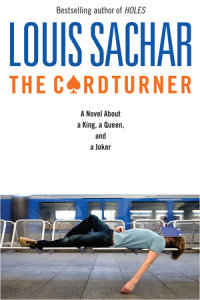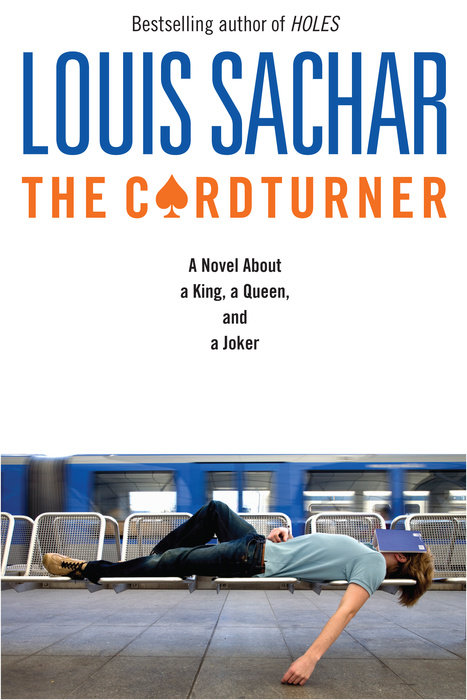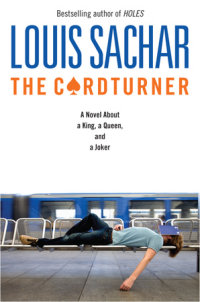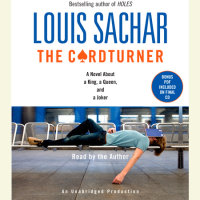The Cardturner
"The Newbery-winning author of Holes fulfills a need the world probably didn't even know it had . . . for smart and puzzle-minded teens . . ."—Booklist
The summer after junior year of high school looks bleak for Alton Richards. His girlfriend has dumped him, he has no money and no job, and his parents insist that he drive his great-uncle Lester, who is old, blind, very sick, and very rich, to his bridge club four times a week and be his cardturner.
But Alton's parents aren't the only ones trying to worm their way into Lester Trapp's good graces. There is Trapp's longtime housekeeper, his alluring young nurse, and the crazy Castaneda family.
Alton soon finds himself intrigued by his uncle, by the game of bridge, and especially by the pretty and shy Toni Castaneda, as he struggles to figure out what it all means, and ultimately to figure out the meaning of his own life.
An Excerpt fromThe Cardturner
1
My Favorite Uncle
Ever since I was a little kid, I've had it drilled into me that my uncle Lester was my favorite uncle. My mother would thrust the phone at me and say, "Uncle Lester wants to talk to you," her voice infused with the same forced enthusiasm she used to describe the deliciousness of canned peas. "Tell him you love him."
"I love you, Uncle Lester," I'd say.
"Tell him he's your favorite uncle."
"You're my favorite uncle."
It got worse as I got older. I never knew what to say to him, and he never seemed all that interested in talking to me. When I became a teenager I felt silly telling him he was my favorite uncle, although my mother still urged me to do so. I'd say things like "Hey, how's it goin'?" and he'd grunt some response. He might ask me a question about school. I imagine it was a great relief to both of us when my mother took back the phone. Our brief conversations always left…



